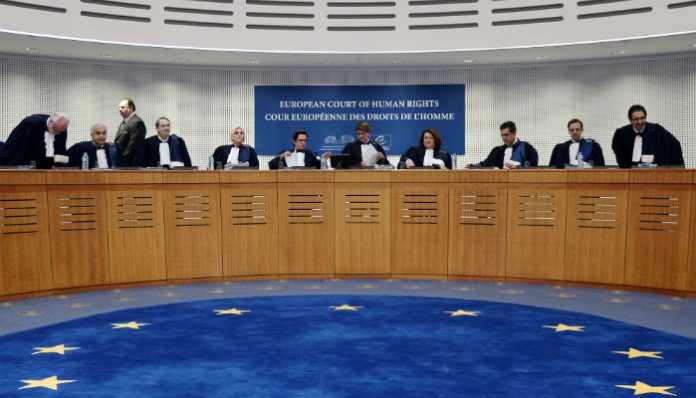An application filed by Kadriye Çatal, a Turkish judge who was suspended from her post in the aftermath of a failed coup attempt on July 15, 2016, has been turned down by the European Court of Human Rights (ECtHR) on the grounds that the judge has not yet exhausted all domestic remedies.
Following the attempted coup, Çatal, who was a judge at the Ankara Labor Court, was suspended from her post by the Supreme Board of Judges and Prosecutors (HSYK). She was arrested and placed in police custody on July 16, and was subsequently released on July, 20. She has not yet been prosecuted.
Relying on Article 6. which concerns the right to a fair hearing, and Article 13, which concerns the right to an effective remedy, of the European Convention on Human Rights, Çatal lodged an application with the ECtHR on Dec. 5, complaining that she did not have access to a court and did not have an effective remedy before a national authority to assert her rights regarding the measure dismissing her. Çatal also relied on Article 7 (no punishment without law), Article 8 (right to respect for private and family life), Article 14 (prohibition of discrimination), Article 15 (derogation in time of emergency), Article 17 (prohibition of abuse of rights), Article 18 (limitation on use of restrictions of rights) of the convention, and Article 1 of Protocol No. 1 (protection of property) in her application.
In its decision, which was made public on Friday, the ECtHR unanimously declared Çatal’s application inadmissible on the grounds that she did not exhaust domestic remedies.
The court observed in particular that a new remedy was available to Çatal, provided for in government decree no. 6851 , enabling her to challenge her dismissal before the Supreme Administrative Court for judicial review. The Supreme Administrative Court’s decision could then, where applicable, be challenged before the Constitutional Court with an individual application, the court said.
Following an application to the Constitutional Court and a ruling by that court, anyone could, if necessary, lodge with the ECtHR a complaint based on the European Convention on Human Rights, added the court.
The failed military coup attempt on July 15 killed over 240 people and wounded more than a thousand others. Immediately after the putsch, the Justice and Development Party (AKP) government along with President Recep Tayyip Erdoğan pinned the blame on the Gülen movement despite the lack of any evidence to that effect.
Although the Gülen movement strongly denies having any role in the putsch, the government accuses it of having masterminded the foiled coup. Fethullah Gülen, who inspired the movement, called for an international investigation into the coup attempt, but President Erdoğan — calling the coup attempt “a gift from God” — and the government initiated a widespread purge aimed at cleansing sympathizers of the movement from within state institutions, dehumanizing its popular figures and putting them in custody.
In the currently ongoing post-coup purge, over 135,000 people, including thousands within the military, have been purged due to their real or alleged connection to the Gülen movement, according to a statement by the labor minister on Jan. 10. As of March 1, 93,248 people were being held without charge, with an additional 46,274 in pre-trial detention.
A total of 7,316 academics were dismissed, and 4,070 judges and prosecutors were purged over alleged coup involvement or terrorist links.



